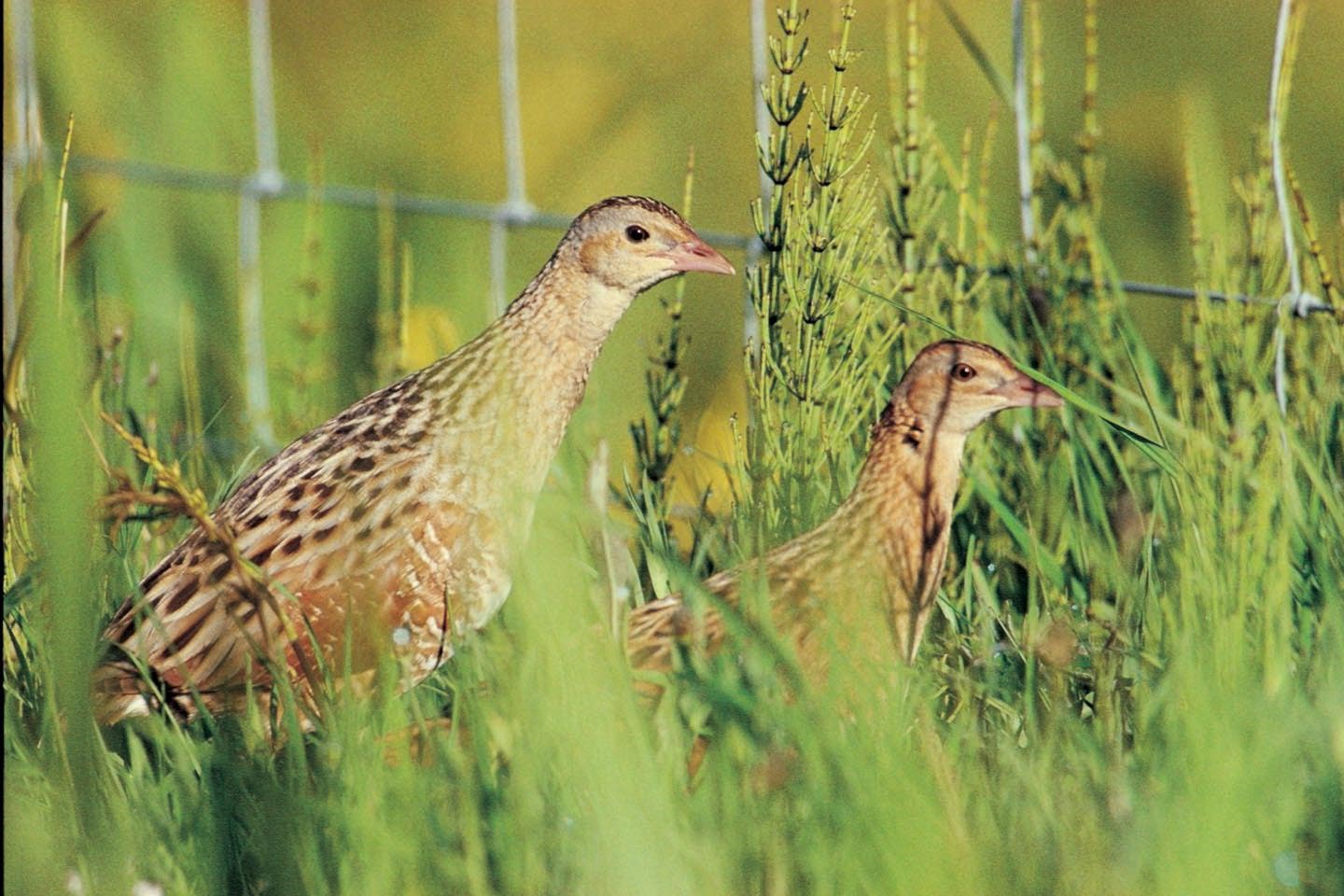Number of corncrakes in Scotland increases for first time in five years
The Royal Society for the Protection of Birds Scotland said the figure takes the numbers of the bird back to levels not seen since 2019.

Your support helps us to tell the story
From reproductive rights to climate change to Big Tech, The Independent is on the ground when the story is developing. Whether it's investigating the financials of Elon Musk's pro-Trump PAC or producing our latest documentary, 'The A Word', which shines a light on the American women fighting for reproductive rights, we know how important it is to parse out the facts from the messaging.
At such a critical moment in US history, we need reporters on the ground. Your donation allows us to keep sending journalists to speak to both sides of the story.
The Independent is trusted by Americans across the entire political spectrum. And unlike many other quality news outlets, we choose not to lock Americans out of our reporting and analysis with paywalls. We believe quality journalism should be available to everyone, paid for by those who can afford it.
Your support makes all the difference.The number of rare corncrake birds in Scotland has risen for the first time in five years, according to a wildlife charity.
The Royal Society for the Protection of Birds (RSPB) Scotland’s annual survey recorded 870 calling male corncrakes, compared to 828 last year.
The charity says the figure takes the numbers of corncrakes in Scotland back to levels not seen since 2019 (867) and it marks an “important result” in efforts to save the birds.
Corncrakes are small brown birds which spend the winter months in Congo but migrate back to a few places in Scotland to breed.
These results are a significant moment for efforts to save corncrakes in Scotland and a real tribute to the enormous collective effort of farmers, crofters and local communities to help these birds through corncrake calling
They are recorded by counting the number of calling male birds making the distinctive “crex crex” noise at night during the breeding season.
The rise has been attributed to partnership working in corncrake areas with local communities, which the charity says has increased the quality and quantity of suitable habitats and corncrake-friendly land management practices.
The islands of Coll, Tiree and Lewis – where land management is in place to make the environment welcoming to corncrakes – have all seen significant increases in the number of males heard this year.
Over winter, vegetation corridors of irises, nettles and cow parsley are encouraged to grow by controlling how they are grazed by livestock, usually using fences, and spreading manure. The birds use these as cover from predators to move about and hide in.
In summer, later mowing dates are required to ensure their nests and chicks are not destroyed.
RSPB Scotland director Anne McCall said the result this year “brings hope of a turning point”.
She said: “These results are a significant moment for efforts to save corncrakes in Scotland and a real tribute to the enormous collective effort of farmers, crofters and local communities to help these birds through corncrake calling.
“While we need to see sustained rises year on year to reverse the decline in corncrake numbers, this year’s result of 870 brings hope of a turning point.
“It shows that targeting the quality and quantity of corncrake-friendly habitat and land management yields results.
“Corncrakes only live for a couple of years, so it’s vital that as many chicks as possible survive each year to make their great migration south.
“These birds used to be found across the UK, so these few areas in Scotland are very special.
“Corncrake calling has allowed us to really focus our efforts with these communities to safeguard their future here and shows the collaborative approach needed across the country to help reverse nature declines.”